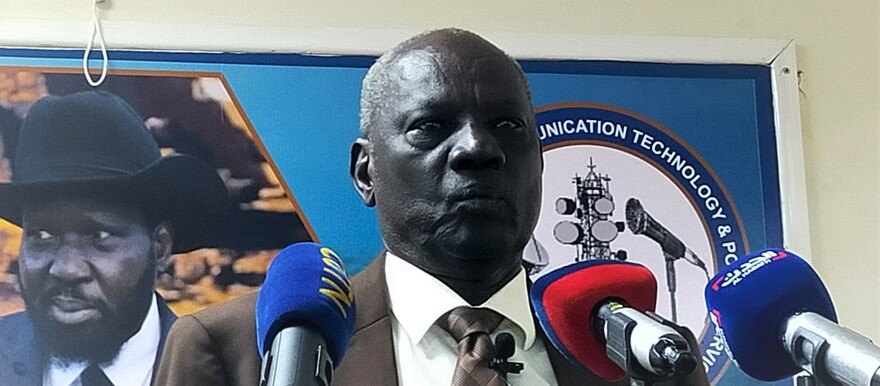The Minister of Information Communication Technology and Postal Services on Friday said the current Transitional National Legislative Assembly (TNLA) does not represent the people of South Sudan.
Addressing a press conference at the Information ministry, Michael Makuei Lueth said the majority of the current members in the upper and lower houses of parliament are not elected and therefore do not represent the views of the South Sudanese people.
“This parliament now is 550 plus and the Council of States which is 100 and that makes 650. I know that only 171 were elected in 2010 for the regional assembly because by then we were a subnational and 96 were elected to Khartoum,” he said. “These were the people who were brought here. If we are talking of elected people, this (171) was the number that was elected and they are less than half of the membership of these (MPs) people.”
He said the current parliament cannot represent the people of South Sudan as most of the lawmakers were appointed. So the country should go for elections so that the masses elect their representatives who can write the permanent constitution.
“The current parliament cannot represent the people of South Sudan and as such they need to go,” Makuei stated. “We need to go for elections, the people of South Sudan should be allowed to elect their representatives and it is their representatives of the people who will come and pass the constitution.”
He noted that the current constitution-making process will continue but elections have to be held so that representatives are elected to write the permanent constitution then it will be dissolved and the country goes for a fresh election.
“The body that will be elected will be a Constituent Assembly to write the constitution,” he explained. “This is the body that will be elected by the people of South Sudan and come and sit, deliberate on the constitution, discuss it, pass it, and then it is signed into law and then thereafter this parliament is dissolved and people go for fresh election by the provisions of the would-be constitution of South Sudan.”
Makuei also said the implementation of the security arrangements is ongoing and that the deployment of the Necessary Unified Forces will be done before the end of the year and phase two of the unified forces will be taken to training sites.




